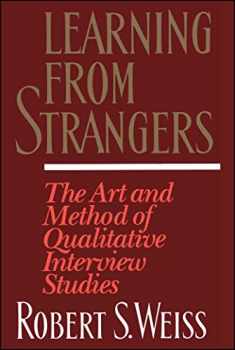
Focus Groups as Qualitative Research, Second Edition (Qualitative Research Methods Series 16)
Book details
Summary
Description
The extensively revised edition of the best-selling Focus Groups as Qualitative Research continues to provide an excellent guide for researchers across the disciplines.
Reflecting the many changes that have occurred in the study of focus groups in recent years, the book begins with an updated introduction offering a discussion of current social science approaches to focus groups. Expanded coverage on the comparison of focus groups to individual interviews follows, and there is more material on the strengths and weaknesses of focus groups. The section on self-contained focus groups has also been expanded. Subsequent chapters have been revised to include examples from social scientists who have established their own practices and methodological research on focus groups. In conclusion, the author offers future directions and references that take into account the explosive growth of focus groups as a research tool for all social scientists.


We would LOVE it if you could help us and other readers by reviewing the book
Book review





